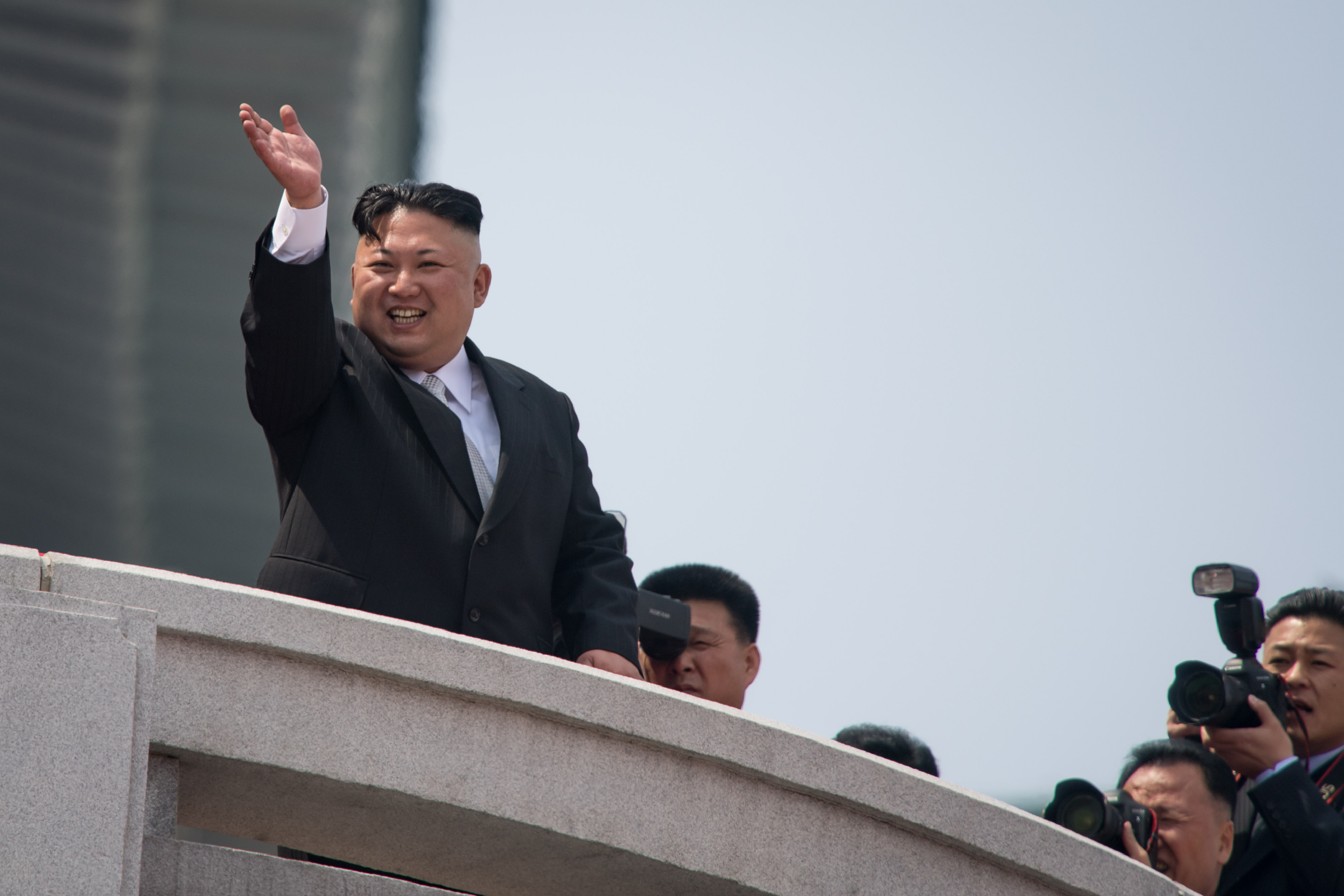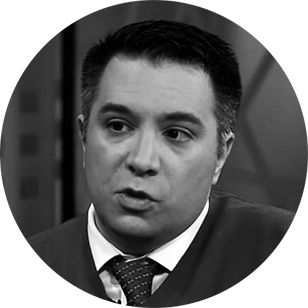How Trump can keep from getting swindled by Kim Jong Un
7 things the president must do before his high-stakes summit with the North Korean dictator


A free daily email with the biggest news stories of the day – and the best features from TheWeek.com
You are now subscribed
Your newsletter sign-up was successful
What a difference a few months makes. Back at the end of 2017, it looked like the United States and North Korea were on a collision course for war. Then Kim Jong Un swerved.
The North Korean leader has finally decided to try diplomacy. Thanks to a combination of external sanctions pressure, the fear of a military strike by the U.S., and the North's ability to relegate its nuclear and missile research to the lab, Kim has opted to return to a time-tested playbook: the offering of an old-school great power summit to end this nuclear standoff once and for all.
Provided Pyongyang is sincere, what happens next will determine if there truly will be war or peace in northeast Asia. A successful summit between Kim and President Trump could set the stage for the denuclearization of North Korea. But a failed meeting would create tremendous pressures on both sides. North Korea would likely go back to missile and nuclear testing while America and its allies could increase sanctions further. This could force Kim to perhaps conduct an atmospheric test that pushes Washington to then respond with deadly military force.
The Week
Escape your echo chamber. Get the facts behind the news, plus analysis from multiple perspectives.

Sign up for The Week's Free Newsletters
From our morning news briefing to a weekly Good News Newsletter, get the best of The Week delivered directly to your inbox.
From our morning news briefing to a weekly Good News Newsletter, get the best of The Week delivered directly to your inbox.
Therefore, the Trump administration must not only lay the groundwork for testing Kim’s intentions, but set up very clear diplomatic redlines and conditions that Pyongyang must meet.
Indeed, such conditionality should not be controversial. Considering the stakes involved, both sides must be sure they can enter the meeting with much of the outcome already guaranteed. The worst mistake of all would be for the Trump administration, or even the North Koreans, to think two men who do not know each other, who have very different backgrounds and no mutual trust can hammer out a deal to denuclearize the so-called Hermit Kingdom in just a few hours or a day.
So here are a set of reasonable conditions that Team Trump should demand of the Kim regime for talks to happen. These will not only flush out their intentions, but make it clear the Trump administration means business about denuclearization.
1. First and foremost, the administration needs to be able to have a clear line of communication to North Korea. That means no more messages through Seoul. While South Korea is clearly acting as a bridge to the North and should be thanked for their efforts, it's time for Washington and Pyongyang to directly communicate important ideas. This is key to avoid misunderstandings. It's also especially important now that North Korea itself has not confirmed directly, at least according to all available press reports, that it has accepted a meeting with President Trump.
A free daily email with the biggest news stories of the day – and the best features from TheWeek.com
2. Next, the location of the meeting must be decided on carefully so no one side gets an optics advantage. That means the meeting can’t be held in Pyongyang or anywhere in North Korea. Even if the talks failed, Kim could use the image of a handshake with President Trump on his home turf as a show of strength to his people, further solidifying his hold on power. Having the meeting in China won’t work because it's a North Korean ally. Japan wouldn't work because it's a U.S. ally. Some neutral nation would also be problematic because of the logistic and security challenges. There is, however, a perfect location: the Demilitarized Zone. There, both sides would get no advantage in locale. Plus, with some of the world’s most powerful armed forces staring at each other, the entire world would see the gravity of the situation — and why a deal must be struck.
3. North Korea must release all three U.S. citizens it has held captive. There is no way Pyongyang can hold this type of leverage over Washington and expect talks to be conducted in good faith.
4. Kim must continue to hold back any nuclear or missile testing while talks are underway. While this has already been agreed to, there is a potential loophole North Korea could try to exploit: claiming to conduct a satellite test that would allow Kim to perfect his ICBM technology — something the regime has done before. Washington must make it clear that any launch of a missile or rocket — no matter the purpose — would nullify any hope of talks.
5. Pyongyang cannot demand the ending of any joint U.S.-South Korea military exercises, either diplomatically or in its propaganda outlets. This is a condition Washington has been firm on, and it must hold the line. We must remember North Korea has drilled its forces all winter long and it's the right of any sovereign nation to make sure its military is a trained, fighting force. Washington and Seoul should be afforded the same right.
6. There should also be no letup of the maximum pressure campaign before or while talks are ongoing. That means no sanctions relief of any kind from any nation. Also, no resumption of North-South Korea joint industrial park efforts will be considered before a nuclear deal is struck. We must not repeat the mistakes of the past, and give North Korea even a cent for talking. Pyongyang would just do what it always does: pocket the concessions, stall talks for months or years, and develop even better missiles and nuclear bombs.
7. Perhaps the most important thing Team Trump must keep in mind is what it hopes this gathering will set in motion: North Korea's eventual forfeiture of its nuclear weapons and missile programs. To get there, Team Trump must demand of Pyongyang at least some outline of what denuclearization means to them and what a roadmap towards that goal looks like. If North Korea can present such a plan, Washington and its allies would offer to slowly roll back sanctions in a reciprocal fashion. For example, if North Korea destroys 10 percent of its nuclear weapons and missile arsenals, Washington and its allies would remove 10 percent of its sanctions.
This is a key point, as in the past, North Korea has demanded a guarantee of its security in exchange for the ceding of its nukes. That can mean anything. For example, the Kim regime has demanded in the past everything from the ending of the U.S.-South Korea alliance and the removal of all U.S. forces from the peninsula to Washington also giving up its nukes. As you can imagine, all of that would be a non-starter, as such moves would be unacceptable to our allies and most likely the American people.
Clearly, we are at the start of a very delicate diplomatic dance where many things could go wrong, endangering and perhaps derailing any chance of a historic meeting. However, the worst thing that could happen would be for President Trump to meet with Kim Jong Un with no preconditions set and no guaranteed deliverables. If that occurred, the chances of failure would be astronomically high, setting the stage for the ultimate nuclear showdown.
Harry J. Kazianis is director of defense studies at the Center for the National Interest, founded by former U.S. President Richard M. Nixon.
-
 The Olympic timekeepers keeping the Games on track
The Olympic timekeepers keeping the Games on trackUnder the Radar Swiss watchmaking giant Omega has been at the finish line of every Olympic Games for nearly 100 years
-
 Will increasing tensions with Iran boil over into war?
Will increasing tensions with Iran boil over into war?Today’s Big Question President Donald Trump has recently been threatening the country
-
 Corruption: The spy sheikh and the president
Corruption: The spy sheikh and the presidentFeature Trump is at the center of another scandal
-
 Epstein files topple law CEO, roil UK government
Epstein files topple law CEO, roil UK governmentSpeed Read Peter Mandelson, Britain’s former ambassador to the US, is caught up in the scandal
-
 Iran and US prepare to meet after skirmishes
Iran and US prepare to meet after skirmishesSpeed Read The incident comes amid heightened tensions in the Middle East
-
 Israel retrieves final hostage’s body from Gaza
Israel retrieves final hostage’s body from GazaSpeed Read The 24-year-old police officer was killed during the initial Hamas attack
-
 China’s Xi targets top general in growing purge
China’s Xi targets top general in growing purgeSpeed Read Zhang Youxia is being investigated over ‘grave violations’ of the law
-
 Panama and Canada are negotiating over a crucial copper mine
Panama and Canada are negotiating over a crucial copper mineIn the Spotlight Panama is set to make a final decision on the mine this summer
-
 Why Greenland’s natural resources are nearly impossible to mine
Why Greenland’s natural resources are nearly impossible to mineThe Explainer The country’s natural landscape makes the task extremely difficult
-
 Iran cuts internet as protests escalate
Iran cuts internet as protests escalateSpeed Reada Government buildings across the country have been set on fire
-
 US nabs ‘shadow’ tanker claimed by Russia
US nabs ‘shadow’ tanker claimed by RussiaSpeed Read The ship was one of two vessels seized by the US military
